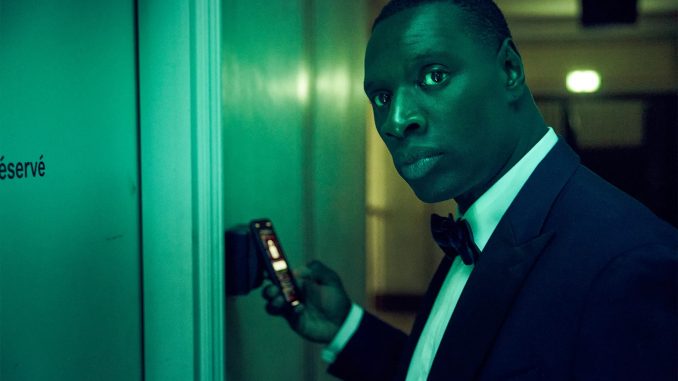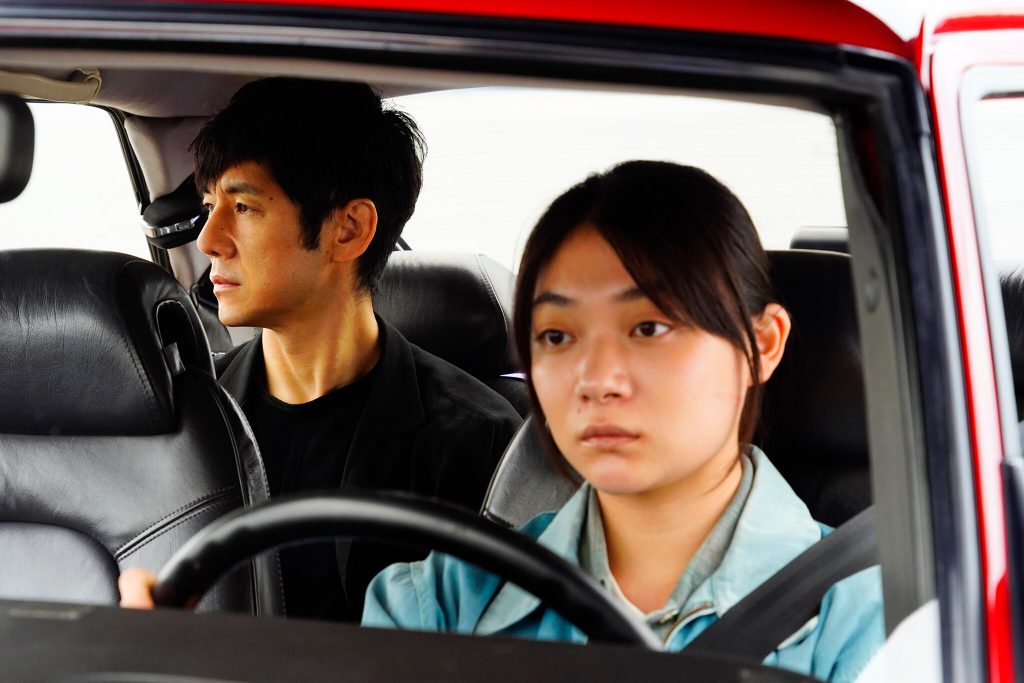
I’m OK with CODA getting the Best Picture Oscar even though I think The Power of the Dog, Drive My Car and Licorice Pizza are the best of the nominated films. After all, Oscar does as Oscar will, and besides, the Academy did manage to give awards to The Power of the Dog (Best Director, Jane Campion) and Drive My Car (Best International Feature Film).
I don’t have any particularly strong feelings about the acting awards, apart from being happy that deaf actor Troy Kotsur won Best Supporting Actor for his role in CODA and fully deserved it. But I hasten to add that some of the best movie-acting I’ve seen recently is technically ineligible for Oscar consideration—because it’s streaming in “limited series.” I’m thinking in particular of David Thewlis and Olivia Colman in Landscapers and Hamish Linklater as the priest in Midnight Mass.
Plus, the Oscars have never really been set up to celebrate one of the great sources of cinematic pleasure—ensemble acting. But in this era of great series, limited and otherwise, on cable or streaming, we are getting a great deal of that—The Sopranos, Mad Men, Breaking Bad, Justified, and more recently in Top of the Lake (also a Jane Campion triumph), Lupin, Landscapers, Midnight Mass and more. That kind of artful energy spills over in some recent feature films as well—the family in CODA, the teenagers in Licorice Pizza, the maturing young lovers in the Norwegian film Worst Person in the World, e.g.

The miniseries format lends itself to a more “novelistic” treatment of the stories being told, and while they’re made primarily for episodic broadcast, I’m much inclined to characterize the best of them as long and artful movies. That is especially so with Landscapers (four episodes, 193 minutes, on HBO) which uses a remarkable array of stylistic devices—flashbacks, subjective stylization, Brechtian distanciation, shifting point of view—to compose a complex and moving portrait of an inchoate married couple (played by Thewlis and Colman) who are caught up in a notorious murder case in 1950s England. The lead performances and its stylistic eccentricities convey an extraordinary sense of two odd and unique beings whose misfortunate lives elude conventional explanations, including their own.
Complex characterization and storytelling are also brilliantly in play in the French mystery series Lupin (two seasons, 10 episodes, on Netflix). Assane Diop, son of a Senegalese immigrant who died in prison, models himself on Arsène Lupin, the archetypal gentleman thief of 19th century French literature. Diop (played with great energy and humor by the formidable Omar Sy) makes it his mission to clear his father’s name by tracking down the wealthy villain who arranged the false conviction. Along the way there are multiple side adventures involving a host of quirky characters. All of it is enrichened by a convoluted time scheme that mixes flashbacks to Assane’s childhood and recent past into the present action, which eventually includes the fledgling adventures of Assane’s own son. An excellent supporting cast includes Ludivine Sagnier, Hervé Pierre, Shrine Boutella, Clotilde Hesme and Soufiane Guerrab (with the latter as an undervalued cop who shares Assane’s devotion to the Arsène Lupin stories).
Midnight Mass (seven episodes, 450 minutes, on Netflix) begins as a realistic social drama set on an island of fishermen off the coast of New England. Gatherings at the island’s Catholic church bring religious themes into play—and eventually we discover that there’s also a horror film emerging in all this.
Writer-director Mike Flanagan’s mix of carefully staged social realism and vampire fantasy mostly succeeds in making the series a very pungent kind of contemporary allegory. And Linklater’s performance as a passive/aggressive evangelizing priest, a milquetoast spewing coded venom, is a major accomplishment at the dark heart of it all.

Be the first to comment